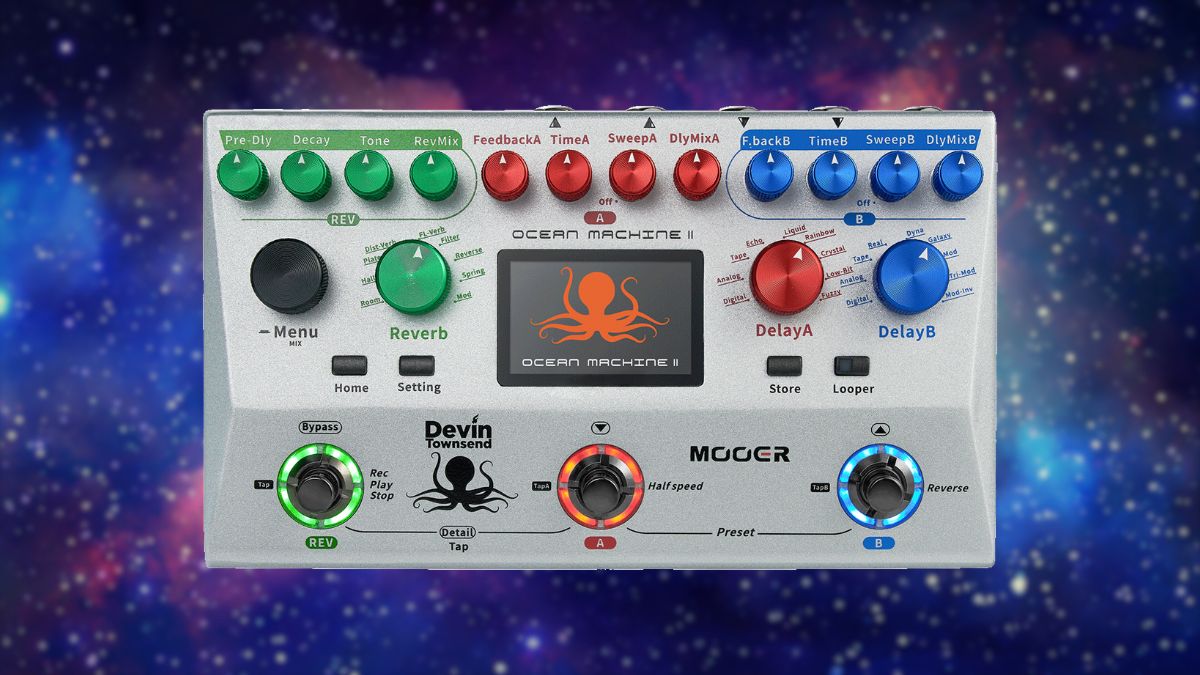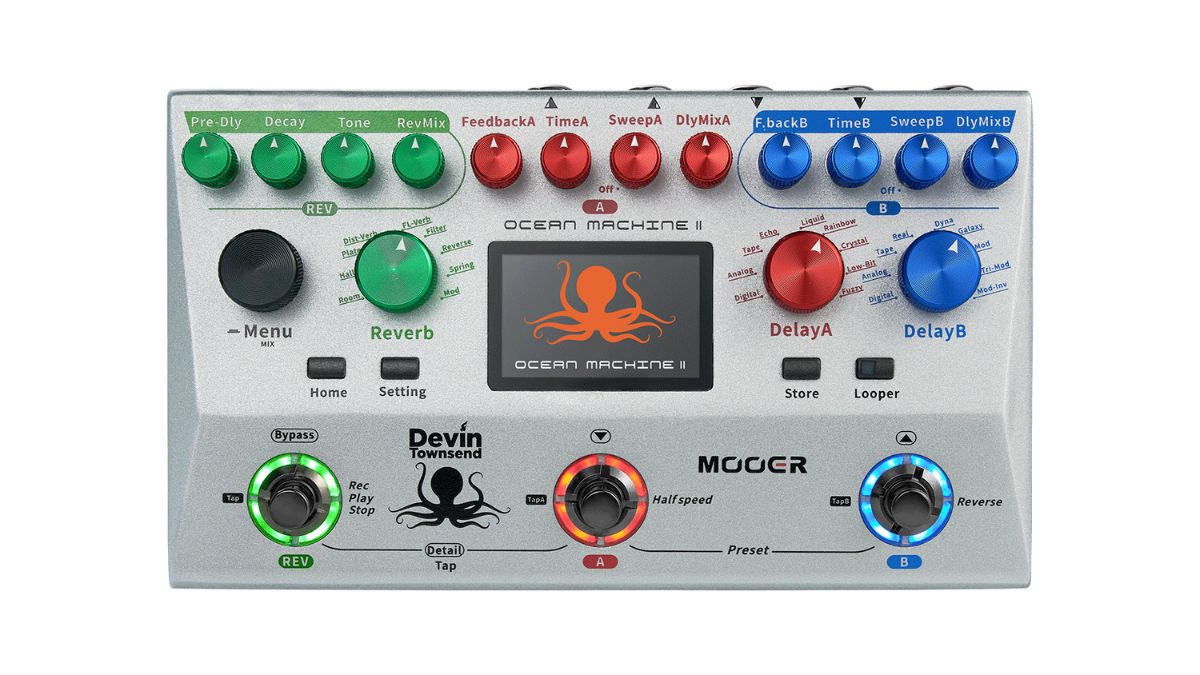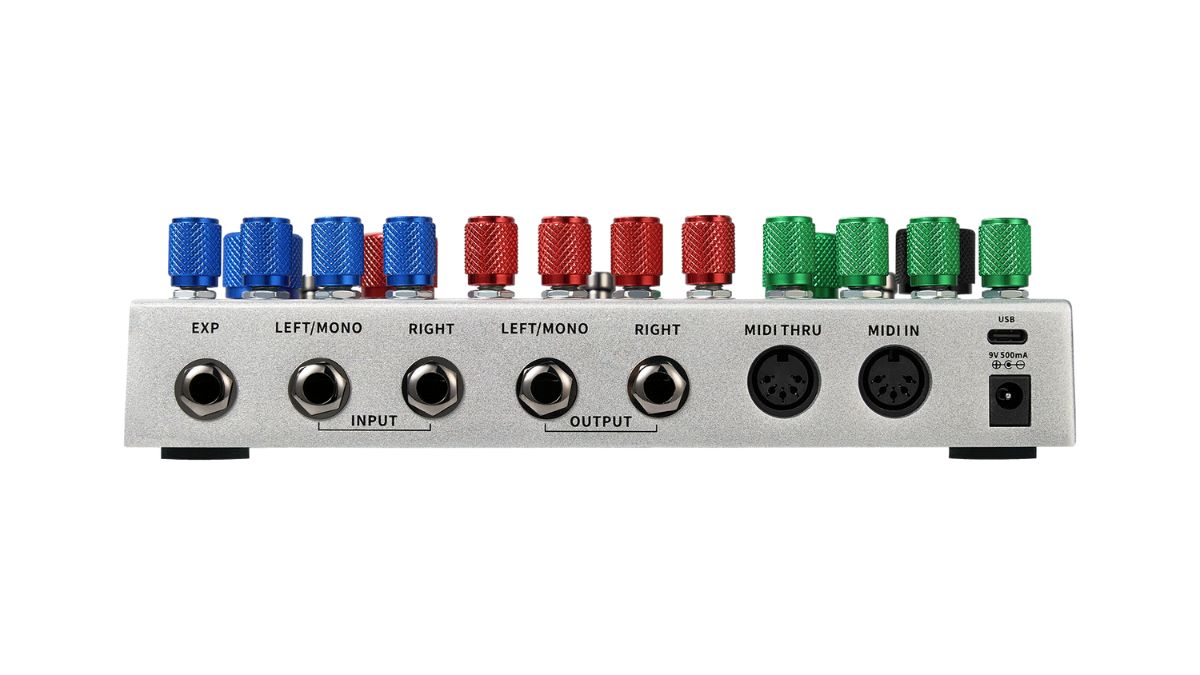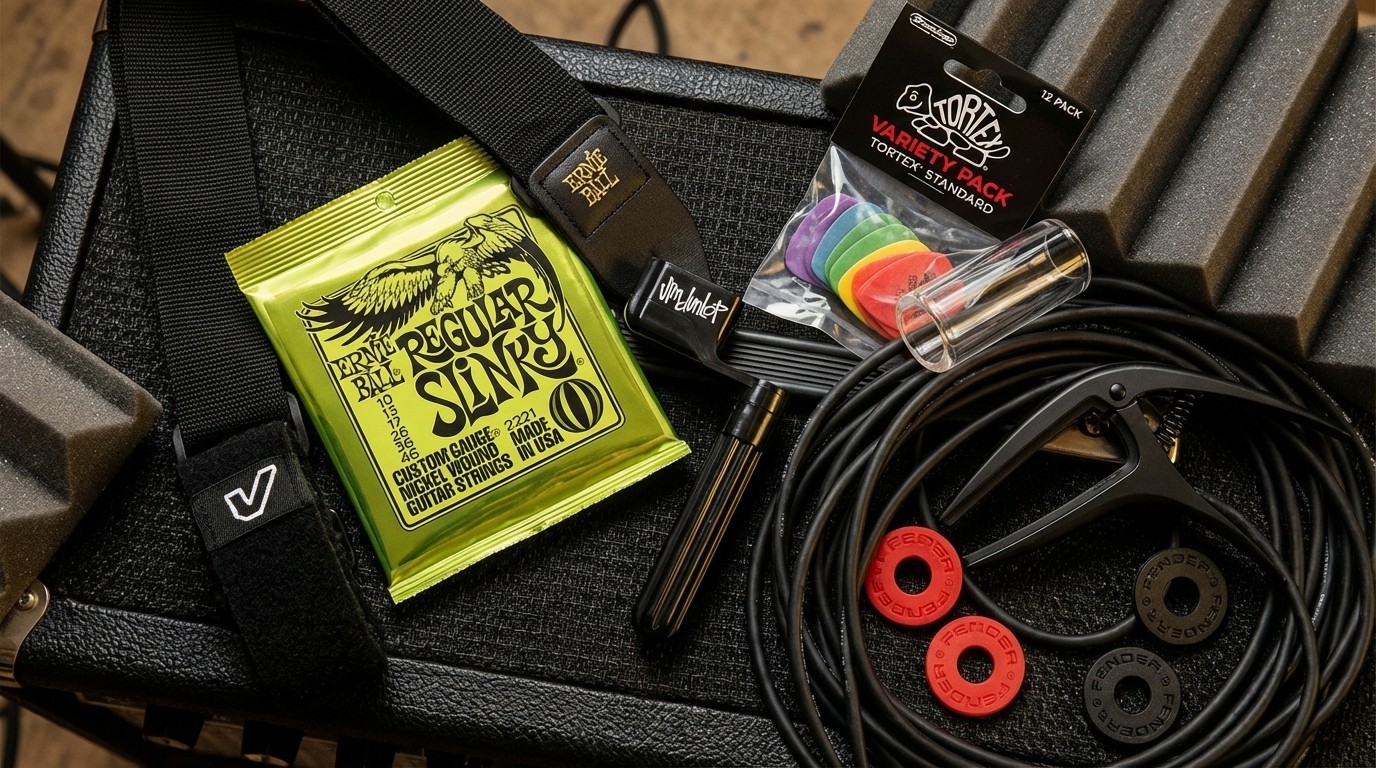“Higher quality delay and reverb algorithms, and augmented looping engineered to withstand the rigors of touring”: Mooer has seriously upgraded Devin Townsend’s wild signature Ocean Machine pedal – with an expanded looper and superior ambient tones
The delay, reverb, and looper pedal returns with updated and improved effects and greater connectivity for “endless creative possibilities”

Mooer and Devin Townsend have revived their sonic partnership for an updated iteration of the Ocean Machine pedal, which stacks a reverb, delay, and looping effects for “lush, ambient atmospheres”.
The prog mastermind loves stacking delay pedals and any other effects units that can send his guitar tones into dreamlike states, and so, like its predecessor, two independent delay modules sit at the heart of the Ocean Machine II.
Here, household delay types such as digital, tape, and echo are joined by the more abstract options like galaxy, crystal, and rainbow. These are in turn complimented by a “high-fidelity reverb module” which has nine flavors and a shimmer effect for extra kicks.
Further still, each delay and reverb can be frozen in time, resulting in droning textures that Mooer says are “particularly impressive considering the pedal’s DSP upgrades”.
On the pedal’s looper side, its initial 44-second loop time has been extended to 120 seconds – that's a 172% increase, if you don’t have a calculator handy.
The feature can be used in conjunction with its LCD screen and 12 control knobs, with four for each delay and reverb module. This allows players to easily adjust their parameters in ‘Play Mode’. Three footswitches boast dominion over those modules and can be used for general navigation, including tap tempo controls, looper interfacing, and preset selecting.
Presets can be stored in the pedal’s 24 available slots, with each footswitch offering its own bank of eight slots.
All the latest guitar news, interviews, lessons, reviews, deals and more, direct to your inbox!

Townsend has accentuated the pedal’s versatility by pushing for a programmable parallel and serial effect chain hybrid, meaning the order of its effects can be personalized for “endless creative possibilities”.
A host of new improvements center around its live performance and experimental abilities. MIDI connectivity makes the Ocean Machine II far more usable than its older brother, as does its newly devised expression pedal compatibility via a TRS cable.
It can also team up with Mooer’s F4 wireless footswitch for more detailed mapping of presets and other features. Finally, a USB-C port makes firmware updates a doddle.
Beyond that, full stereo inputs and outputs, adjustable global EQ settings, and true bypass and DSP (buffered) bypass options are also extended to its users.

“Ocean Machine II brings higher quality delay and reverb algorithms, augmented looping support, and various updated connections to Devin Townsend’s original device,” says Mooer. “The pedal is engineered to withstand the rigors of touring, allowing guitars to bring their special creations and atmospheric drones to the stage.”
The pedal augments Devin's love for digital amps – “When you ask people about their favorite amp, the acceptable responses are always the cork-sniffin’ ones. If it’s an Axe-Fx, people go, ‘That’s sacrilege,’” he says.
Check out Mooer for the full Ocean Machine II scoop.
In related Mooer news, it has stuffed a pedalboard's worth of effects and futuristic features into its next-gen intelligent guitar, the M810.
A freelance writer with a penchant for music that gets weird, Phil is a regular contributor to Prog, Guitar World, and Total Guitar magazines and is especially keen on shining a light on unknown artists. Outside of the journalism realm, you can find him writing angular riffs in progressive metal band, Prognosis, in which he slings an 8-string Strandberg Boden Original, churning that low string through a variety of tunings. He's also a published author and is currently penning his debut novel which chucks fantasy, mythology and humanity into a great big melting pot.

